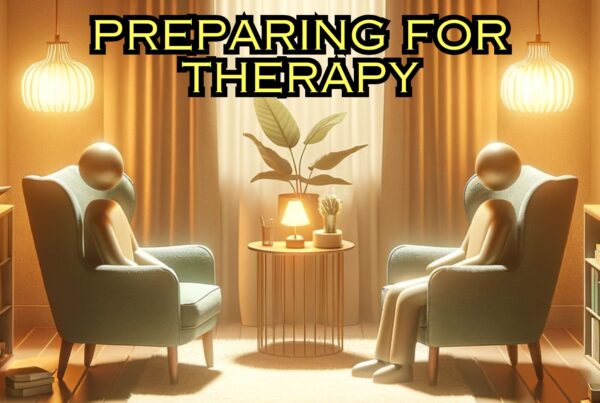What Is Shame... Really.
Have you ever had a secret?
To experience shame, you just need to ask yourself if you have ever had a secret? One that you felt was so bad that, if others found out, you would fear that they would no longer want to associate with you? So you just kept it quiet, carrying it around as your 'dark little secret'.
Or have you ever felt that you were simply not good enough? You walk around feeling like a fake and waiting for others to call you out.
Have you been in a situation where you just didn't feel like you fit in? You played along with the situation, hoping that you could assimilate in. Deep down though, you knew that you were just playing along so that you weren't cast out. This allowed you to avoid feeling judged by others and feeling inferior.
If any of the above sounds like a situation you've found yourself in, then you may be dealing with shame.
Defining Shame
Even trying to define shame can be challenging in itself. In her book 'Daring Greatly: How the Courage to be Vulnerable Transforms the Way We Live, Love, Parent and Lead', Brene Brown defined shame as being, "...the intensely painful feeling or experience of believing that we are flawed and therefore unworthy of love and belonging."
She then goes on to talk about the twelve 'shame categories' that have emerged from her own research, being, 'appearance and body image, money and work, motherhood/fatherhood, family, parenting, mental and physical health, addiction, sex, aging, religion, surviving trauma, and being stereotyped or labeled'.
My Own Personal Experience
As a male who has had his weight frequently go up and down, I know that my experience of shame when I am overweight can certainly become quite pronounced.
I begin to feel inferior to others around me. My body shape disgusted me every time I looked in the mirror. I question my own will power and ability to take control of my body and, indeed, my life.
"If I can't manage something like my body, how am I supposed to be successful?", asks that voice in my head.
It stops me from being fully present, and from engaging with others meaningfully. Worst of all, it stops me from engaging with myself because I suddenly feel that being overweight defines who I am and that I am less of a person because of it.
I'm Bad.
We have to resist the temptation though to view shame as being 'bad'.
If we look at an emotion like anger, the experience of which can be used in beneficial ways as well as being dangerous. When we experience the right amount of anger, it can drive us to confront the situation and fix it. Once we have felt heard and appropriate action has been taken, we can let go of the anger and move on.
The problem comes when we allow that anger to become all consuming and this can lead to undesirably behaviours, such as shouting, aggression and even potentially violent outbursts. In that instance, the anger has taken control and created a version of ourselves that we would not find any pride in.
Healthy vs Toxic Shame
In his book 'Healing The Shame That Binds You', John Bradshaw talks about both healthy and toxic shame.
He explores how healthy shame allows us to be human; to feel empathy and understanding for others. It allows us to know what our limitations and boundaries are; what is appropriate and inappropriate in social settings. Healthy shame allows us to feel guilty over what we've done and that can lead us towards actions to rectify the situation. While many may view feeling guilty as a bad thing, consider for a moment that it only comes because of an action you've done that you know you shouldn't have; it is actually your values and ethics coming into play and allowing you to feel empathy and remorse for your actions.
Toxic Shame
On the flipside of that is toxic shame. This is shame that becomes so consuming that we are forced into a position where we create a false-self that is socially acceptable but inauthentic to who we are. We fear that our flawed self is so undesirable that it will cause us to disconnect from our relationships and the ones we love. We create a version of ourselves that becomes what we believe others expect us to be however in those moments, we lose touch with who we really are. We lost touch with our own authentic self, preventing us from being completely real with everyone else.
The Three Things That Intensify Shame
You'll find the three things that can intensify your shame is secrecy, silence and judgement. Allowing it to sit in your mind, the shame will only serve to continually feed the existing beliefs about how flawed you are, how unlovable you are, how much of a bad person you are. You'll continue to build this profile and divide between the real self and the version of you that you allow yourself to see.
Unresolved Shame
Left unresolved, toxic shame can often be the cause of a multitude of mental health issues including:
- addiction
- self-alienation and isolation
- codependency
- borderline personality
- uncontrollable anger and rage
Shame Resilience
What all people with high levels of shame resilience share is that they know what triggers their shame. They know how to reality check their shame and they reach out and share their story.
Imagine for a moment that someone you love shares with you that they feel unworthy; how do you speak to them? If you can learn to speak to yourself in that same way, you're going to be able to feel far greater self-acceptance too. When you reach out to someone you trust, who can offer you genuine empathy and share your story, then you'll find that your shame cannot survive being spoken.
You Are Not Your Shame
There are many ways in which shame can be managed or resolved although they all ultimately come down to a release and expression of the shame, allow it to be out there, outside of our bodies, and greeted with understanding and empathy. Once we are able to realised that we are not our shame, we can then begin to find some self-acceptance and self-love and allow us to engage with those past shame inducing experiences in a new way.
Book Your FREE 30 Minute Consultation With Release Hypnosis NOW!
You might also like to read:
Why Every Hypnotherapist Should Learn How To Record
Release Hypnosis’s Lawrence Akers on JOY FM
Are you a Melbourne based Hypnotherapist, Therapist or Coach looking for rooms to hire?
Getting Mental Health On The Line – Weekending 18/6/17








